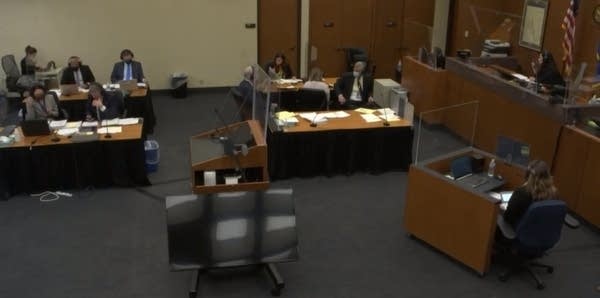Kimberly Potter trial: A look at the case before the trial begins Wednesday

Jury selection is held in Minneapolis for the trial of former police officer Kimberly Potter, who shot and killed Daunte Wright in April 2021.
Screenshot of Court TV video
Go Deeper.
Create an account or log in to save stories.
Like this?
Thanks for liking this story! We have added it to a list of your favorite stories.


